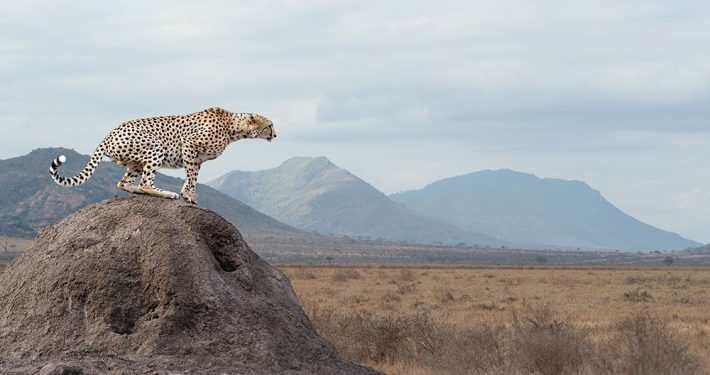Top tips for your career from the Student Futures and Research Conference

A career in the ecological sciences can be very rewarding, with exciting and varied opportunities available within the job sector. Getting onto the career ladder, whether straight from studying or as a career change, can however be a challenge with many asking how to gain experience when opportunities to do so have been limited over the last few years.
Delegates of the first ever Student Futures and Research Conference in 2021, organised in collaboration with The Linnean Society of London, gained an insight into the obstacles faced by those currently working in natural history and ecology. We have collated some tips which can support anyone seeking a career in the sector to progress:
- Networking – careers in ecology can vary widely so seek out those in careers you have an interest in and ask questions. This can be a great way to find out about opportunities and can open doors for you. Putting yourself out there can be daunting but it is very common to feel that way and you will find that the vast majority will welcome your approach.
- Social media presence – set up a LinkedIn profile and Twitter account to connect with potential future employers. They are a great tool to boost your online profile and also to spot new opportunities. Many job opportunities circulate via Twitter and you can follow job related accounts to keep up to date.
- Soft skills – whatever your current career stage or circumstances it is always a good time to focus on your soft skills. Teamwork, leadership and time management are all examples of these skills. Find evidence for the skills you already have – perhaps you gained communication skills during your PhD or teamwork when working in your local shop. They all count!
- Training – there is a lot of free and paid for training available. The key is to do your research and identify the right training for you. If you are considering a career in consultancy, can you work towards gaining a protected species licence? How about a role organising a local area’s conservation group, could volunteer management training be right for you? Learned societies have training opportunities, if there is a topic you particularly need training on let them know.
- Seek out opportunities – fancy increasing your writing experience? Many organisations have a blog that they encourage contributions to, or magazines that want articles written. Need to improve your confidence in public speaking? Seek out ways you can practice whether online or in person, for example at a local speaking group. It is feared by many but is vital in most job roles in and outside of academia, so is a key skill to have once you get into it!
- Identification skills – candidates with species ID skills are increasingly in demand for many careers such as consultancy, research, NGOs and outdoor education. Find ways to improve your ID skills for example in botany, fungi or birds. Can you identify a hazel nut nibbled by a dormouse or a wood mouse? Can you tell a tree from its winter twig? You can work on your ID skills in your spare time, self-taught with good resources and it is fun!
- Search job descriptions – it’s never too early to search for job roles even when not actively applying. Getting an idea of the essential and desirable experience a job is asking for can help you to plan your next steps. Do you need a driving licence? Do you need specific training?
- Make the most of university – if you are still studying this is an ideal time to be self-reflective and consider how you can best manage your time to gain skills. Choose modules carefully and consider whether you can align your dissertation with your goals. University societies often provide opportunities to gain experience in some administrative roles.
- Find a mentor – there are many mentoring schemes available and we at the British Ecological Society will have a brand new mentoring programme this year! A mentor can help you reach your potential and set objectives for your next steps to progression.
- Learned societies – become a member of a learned society to help progress your career. They are there to support members and will have a range of ways for you to engage with others. They can help you network and provide opportunities to attend events, conferences and access grants for travel and research. They are also a great addition to a CV and demonstrate you have a genuine interest in a subject.
The Student Futures and Research Conference 2022 will be taking place in collaboration with the Linnean Society of London 7 – 11 March. We have worked with a group of student organisers to create a programme with recorded content, resources and guidance that will support you in progressing your career in ecology and the natural sciences. Our live sessions will cover topics including kickstarting your career, research and funding, inclusion, eco-anxiety and optimism, and provide you with the enthusiasm and motivation to pursue your goals. We look forward to seeing you there!
Like what we stand for?
Support our mission and help develop the next generation of ecologists by donating to the British Ecological Society.